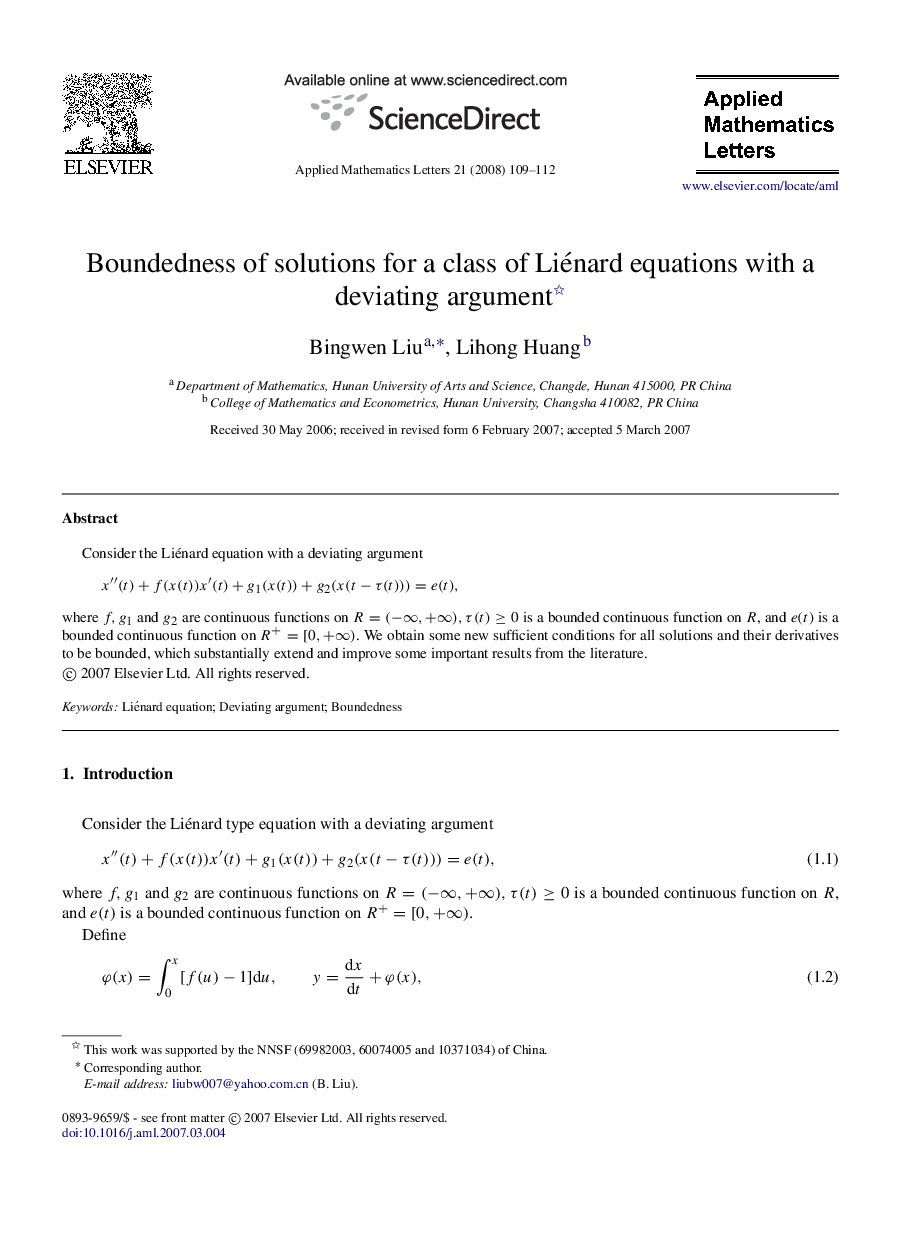| Article ID | Journal | Published Year | Pages | File Type |
|---|---|---|---|---|
| 1709655 | Applied Mathematics Letters | 2008 | 4 Pages |
Abstract
Consider the Liénard equation with a deviating argument x″(t)+f(x(t))x′(t)+g1(x(t))+g2(x(t−τ(t)))=e(t),x″(t)+f(x(t))x′(t)+g1(x(t))+g2(x(t−τ(t)))=e(t), where f,g1f,g1 and g2g2 are continuous functions on R=(−∞,+∞),τ(t)≥0R=(−∞,+∞),τ(t)≥0 is a bounded continuous function on RR, and e(t)e(t) is a bounded continuous function on R+=[0,+∞)R+=[0,+∞). We obtain some new sufficient conditions for all solutions and their derivatives to be bounded, which substantially extend and improve some important results from the literature.
Keywords
Related Topics
Physical Sciences and Engineering
Engineering
Computational Mechanics
Authors
Bingwen Liu, Lihong Huang,
